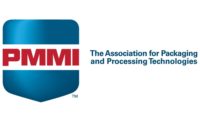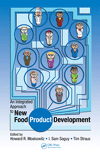ReFED, a multi-stakeholder nonprofit committed to reducing the $218 billion of food waste in the United States, has launched the Retail Food Waste Action Guide, which finds that food waste represents an $18.2 billion opportunity for grocery retailers. Developed in partnership with the Food Waste Reduction Alliance (FWRA) and its members, the Guide is designed to support grocery retailers in developing and implementing food waste reduction strategies.
ReFED works directly with food businesses, innovators, investors, foundations, and policymakers to implement food waste solutions, setting a clear path to achieve the national goal of cutting food waste in half by 2030. The Retail Food Waste Action Guide was created with input from more than 30 expert contributors, including major retailers such as Ahold Delhaize USA, Albertsons, Kroger, Publix, Safeway, Target, Wegmans, Walmart, and Whole Foods.
The Guide builds on ReFED’s 2016 report, A Roadmap to Reduce U.S. Food Waste by 20 Percent, the most comprehensive analysis of U.S. food waste and solutions conducted to date.
Today, the United States wastes roughly 63 million tons, or $218 billion, of food annually. Reducing food waste increases food security, spurs economic growth, and creates local jobs. For grocery retailers, food waste represents an $18.2 billion opportunity. The Retail Food Waste Action Guide presents a set of proven prevention, recovery, and recycling solutions to help the industry prioritize and accelerate waste reduction activities.
“We’re seeing a major trend of retailers increasing focus on food waste,” explains Chris Cochran, executive director of ReFED. “What was once seen as a built-in cost of doing business is now viewed as a controllable expense and source of value. ReFED is partnering with retailers to put these waste solutions into action.”
The Retail Food Waste Action Guide’s key findings include:
• On average, the value of wasted food in retail is equal to roughly double the profits from food sales.
• Prevention solutions such as dynamic pricing and markdowns have the highest profit potential.
• Retailers can increase food donations to provide nearly 1.2 billion more meals.
• New digital technologies such as ride-sharing platforms and chain-of-custody records are being applied to food waste through solutions like Dynamic Routing and Cold Chain Management.
• Low-cost solutions, such as standardized date labeling, already exist and are easy to implement.
ReFED led the development of the Retail Food Waste Action Guide in partnership with Deloitte Consulting LLP. The Food Waste Reduction Alliance and ReFED’s Advisory Council contributed valuable insights, data, and industry perspectives to inform the analysis and solutions presented in the guide.
“The Grocery Manufacturers Association (GMA) is committed to reducing food waste and eliminating hunger across the country,” said Meghan Stasz, GMA senior director of sustainability and a leader of the Food Waste Reduction Alliance, a partnership between grocers, retailers, and the restaurant industry. “The Food Waste Reduction Alliance was formed to encourage the sharing of best practices within and across industry segments. We’re pleased to partner with ReFED in offering these new guides, which provide actionable advice for operators at all levels of the food waste reduction journey.”
“Today’s release of ReFED’s Retail Food Waste Action Guide offers a fresh opportunity for companies already deeply engaged on the issue of food waste, as well as those just starting out, to take a 360-degree view of their operations in search of new approaches and solutions,” said Andrew Harig, senior director of sustainability, tax and trade with the Food Marketing Institute, on behalf of the Food Waste Reduction Alliance. “The Guide is undoubtedly an important new tool in retailers’ efforts to reduce food waste across the entire supply chain. The Food Waste Reduction Alliance’s collaboration with ReFED has offered exciting new insights into the importance of active engagement to reduce food loss and we couldn’t be more pleased that the guide is the first product of this effort.”
"Reducing food waste has become a key strategy for businesses to reduce cost while helping people become food secure,” said Kathleen McLaughlin, chief sustainability officer for Walmart Stores, Inc., and president of the Walmart Foundation. “The Retail Food Waste Action Guide aligns with Walmart and the Walmart Foundation’s work to reduce waste, including Walmart’s goal to achieve zero waste in the U.S. by 2025, and to provide 4 billion meals to individuals in need by 2020 through food donations from stores and grants to charitable organizations. We were proud to contribute insights and philanthropic funding to the production of the Guide."
"The sustainable retailing team at Retail Business Services, an Ahold Delhaize USA company, partnered with Ahold Delhaize US brands Stop & Shop, Giant/Martin's and Giant to work alongside ReFED from the beginning and provided valuable input into the Roadmap as a result of experiencing firsthand the impact of this valuable tool. We look forward to continuing our collaboration with ReFED and to help to set a clear path for food waste reduction across the grocery retail industry," said Christine Gallagher, environmental sustainability manager, Retail Business Services, an Ahold Delhaize USA company.
“Grocery retailers have a great opportunity to lead the way in curbing food waste through the implementation of best practices,” said Darcie Renn, senior sustainability manager, Albertsons Companies. “As we continue to reduce waste in our operations, Albertsons Companies is pleased to have contributed to ReFED’s guide that will support all retailers in their efforts to tackle this issue.”
For a direct link to the Retail Food Waste Action Guide, key insights, and relevant infographics and resources, visit refed.com/retail.





